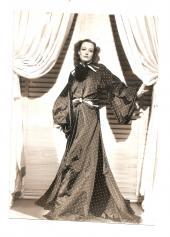'Focus' entertaining, but good pieces don't make satisfying whole
By Barry Paris / Pittsburgh Post-Gazette
Nicky Spurgeon runs a kind of Academy of Con Arts and Sciences. The arts involve sleight-of-hand and misdirection. The science is getting people to trust you.
It’s all a matter of “Focus,” says Nicky (Will Smith), himself a master grifter, who takes amateur con Jess (Margot Robbie) under his wing, as well as his sheets, and supplies her with insightful tricks of the trade: “The brain is very predictable. It’s slow and can’t really multitask. Tap him here, take from there ...”
With that promising premise, writer-directors Glenn Ficarra and John Requa serve up a hybrid advertised as a comedy, drama, crime story and romance — one or two genres too many, vying with each other to find a balance or to see which one wins.
After a stylish opening gambit in snowy Manhattan, the “Focus” locus shifts to New Orleans, where Nicky’s gang executes a nifty job in a beautifully choreographed sequence set during Mardi Gras: The cameras capture a whole team of con artists as they steal their way through the drunken crowds. So much simultaneous activity, so smoothly edited.
We get the clear idea, at this point, that the film is going to be an ensemble affair, with a virtual repertory company full of interesting skimmers at work and even more of them in a secret warehouse afterward, counting and divvying up the loot. We also get the clear idea that Nick and Jess have graduated from Just Sex to True Romance.
Ah, but being a professional liar/cheater is hazardous to the health of your love life, and just when these lovers are celebrating their Fat Tuesday take, he ditches her.
Cut to Buenos Aires, three years later. Nicky is there for a multimillion-dollar racetrack confidence scam he has long been plotting. Suddenly Jess shows up — a sadder but wiser femme fatale — to mess with his plans and his head.
Messrs. Ficarra and Requa (makers of the spotty but fascinating “I Love You Phillip Morris” and “Crazy, Stupid, Love”) are more adept at writing and rendering certain central set-piece situations than at unifying the whole.
Aside from the Mardi Gras scenes, the film’s best sequence depicts Nicky giving in to his gambling addiction in an escalating series of bets against a wealthy Asian (BD Wong), whose deep pockets invite deeper pickpockets to come.
There’s some occasionally funny dialogue. (“Where are all the black people?” yells drunken Nick in a casino.) There are some nice plot twists early on, and some totally preposterous ones later.
The Smith-Robbie pairing works fairly well overall, but excessive “Focus” on the goo-goo eyes and softcore sex fails to make them more compelling or convince us they’re ever in any real peril. Their backstory is largely nonexistent. Yet Mr. Smith’s natural charm (plenty left over from “The Pursuit of Happyness” and “Ali”) makes for nice chemistry with Ms. Robbie’s breathless sexuality. She has bad-hair moments and doesn't go nude here, the way she did as Leo DiCaprio’s druggy girl/wife in “The Wolf of Wall Street,” but she looks invariably ravishing in a bikini.
Suffice to say that together, tumbling in and out of a lotta hotel beds, they keep the maids busy and are so good at deception that they themselves don’t quite know when they’re manipulating each other and when they’re for real.
Good supporting cast includes Rodrigo Santoro as Nicky’s Argentine “mark” and Gerald McRaney as his menacing henchman. But the weird thing is, all but one of the captivating characters introduced in the early Mardi Gras scene disappear thereafter. The exception is Adrian Martinez as Nick’s funny fat friend Farhad, who always says he’s “doing a cleanse” and supplies most of the comedy. Were the writer-directors afraid to risk overshadowing Mr. Smith and Ms. Robbie with a real ensemble? I don’t know, but it’s a shame — the lost script opportunity to fit the minor players into the major con game.
Final kvetch: The magic sleight-of-hand moments are indicated (through misdirection) but never actually shown. The studio boasts Apollo Robbins (“The Gentleman Thief”) as its official consultant for those scenes. So why didn’t they give us at least a single good demonstration of how a fast-moving professional pickpocket removes a watch with one hand? I mean the pickpocket’s hand, not the watch’s hand.
Oh, never mind.
The hocus-pocus of “Focus” always seems to be just outside of the camera's range. All in all, it’s entertaining. It won’t hold you spellbound or remain with you as hauntingly universal thereafter. But it’s not the worst two hours you could spend in a warm movie theater in frigid February.
Post-Gazette film critic emeritus Barry Paris: parispg48@aol.com.





